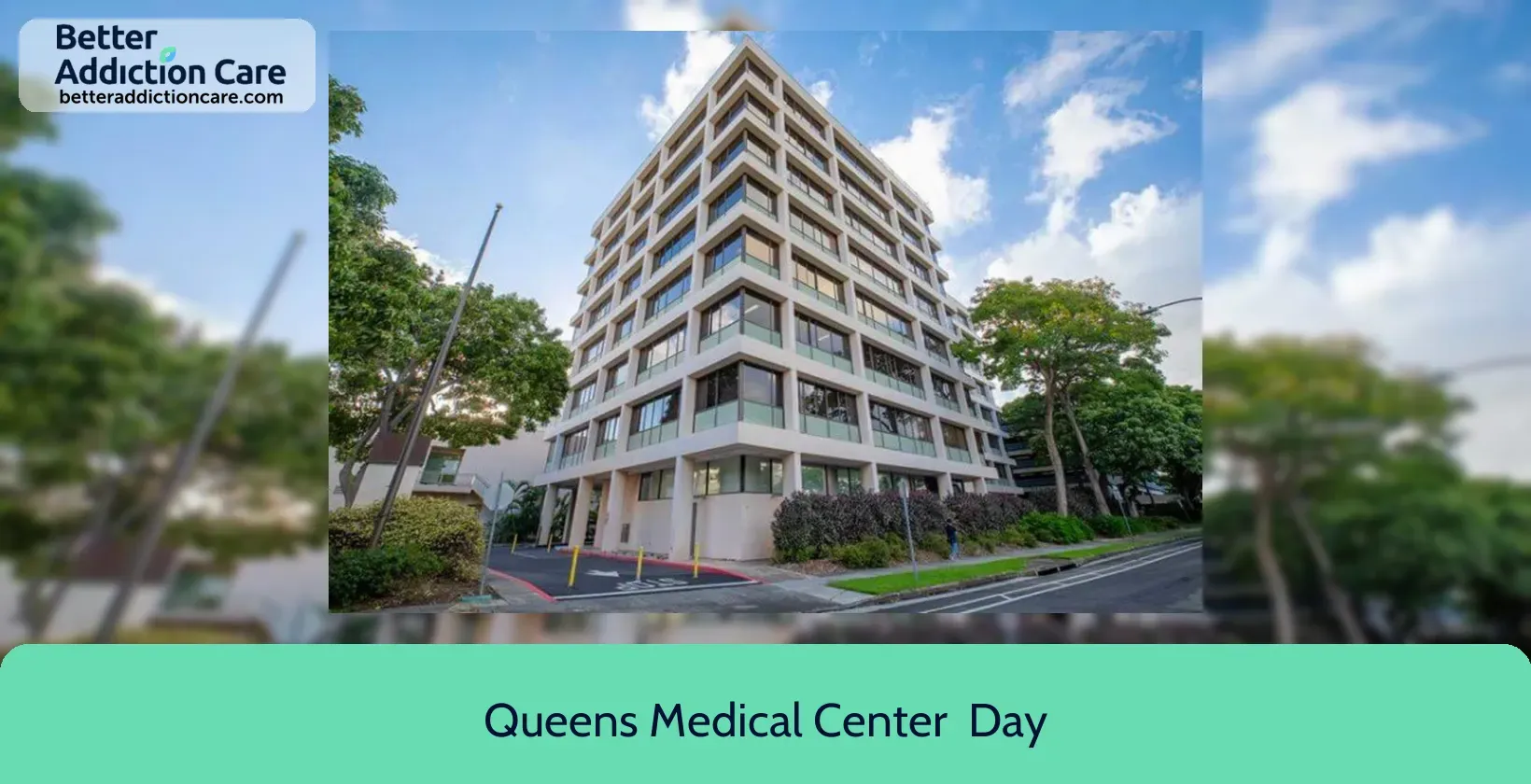Queens Medical Center - Behavioral Health

Overview
Queens Medical Center - Behavioral Health is a mental health treatment center for people seeking treatment near Honolulu County. As part of their treatment modalities for recovery, Queens Medical Center - Behavioral Health provides group counseling, cognitive behavioral therapy, and dialectical behavior therapy during treatment. Queens Medical Center - Behavioral Health is located in Honolulu, Hawaii, accepting cash or self-payment for treatment.
Queens Medical Center - Behavioral Health at a Glance
Payment Options
- Cash or self-payment
- Medicaid
- Medicare
- State-financed health insurance plan other than Medicaid
- Private health insurance
Assessments
- Screening for tobacco use
- Comprehensive mental health assessment
- Comprehensive substance use assessment
Age Groups
- Seniors or older adults
- Young adults
- Children/adolescents
- Adults
- Seniors
Ancillary Services
- Case management service
- Chronic disease/illness management
- Court-ordered outpatient treatment
- Diet and exercise counseling
- Education services
Highlights About Queens Medical Center - Behavioral Health
6.74/10
With an overall rating of 6.74/10, this facility has following balanced range of services. Alcohol Rehabilitation: 8.00/10, Drug Rehab and Detox: 6.00/10, Insurance and Payments: 6.00/10, Treatment Options: 6.97/10.-
Alcohol Rehabilitation 8.00
-
Treatment Options 6.97
-
Drug Rehab and Detox 6.00
-
Insurance and Payments 6.00
Treatment At Queens Medical Center - Behavioral Health
Treatment Conditions
- Mental health treatment
- Alcoholism
- Substance use treatment
- Co-occurring Disorders
Care Levels
- Hospital inpatient/24-hour hospital inpatient
Treatment Modalities
- Group counseling
- Cognitive behavioral therapy
- Dialectical behavior therapy
- Integrated Mental and Substance Use Disorder treatment
- Electroconvulsive therapy
Ancillary Services
Languages
- Sign language services for the deaf and hard of hearing
Additional Services
- Pharmacotherapies administered during treatment
- Housing services
- HIV testing
Special Programs
- Clients with co-occurring mental and substance use disorders
- Veterans
- Members of military families
- Criminal justice (other than DUI/DWI)/Forensic clients
- Clients with HIV or AIDS
Get Help Now
Common Questions About Queens Medical Center - Behavioral Health
Contact Information
Other Facilities in Honolulu

6.65

6.97

6.86

6.68

6.68

6.56

6.94

8.20
DISCLAIMER: The facility name, logo and brand are the property and registered trademarks of Kokua Support Services, and are being used for identification and informational purposes only. Use of these names, logos and brands shall not imply endorsement. BetterAddictionCare.com is not affiliated with or sponsored by Kokua Support Services.
